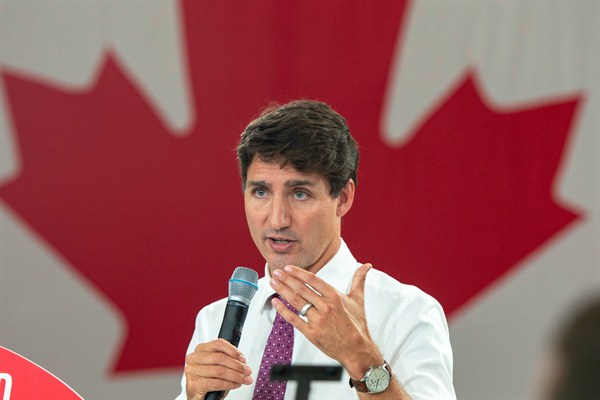Voters in Canada will go to the polls on Oct. 21 to decide whether Prime Minister Justin Trudeau should be returned to power. Trudeau swept into office following a decisive victory in the 2015 federal elections, but his popularity has declined precipitously since then as a result of several high-profile scandals. This year’s election is widely seen as a toss-up, with polls showing Trudeau’s Liberal Party running neck-and-neck with the main opposition Conservative Party, led by Andrew Scheer. In an email interview with WPR, Christopher Sands, director of the Center for Canadian Studies at the Johns Hopkins School of Advanced International Studies, assesses Trudeau’s first term and the factors that could make or break his reelection bid.
World Politics Review: How would you evaluate Justin Trudeau’s first term as prime minister? Has he followed through on the campaign promises he made in 2015?
Christopher Sands: Trudeau’s 2015 campaign was mostly about symbolism rather than specifics. He promised to jump-start the economy by running large fiscal deficits to invest in infrastructure and technological innovation, but his plans were thin on details. He also called for a nation-wide carbon tax, and said he would champion the rights of women, youth and indigenous people. Finally, he promised a more assertive Canadian foreign policy, and said he would improve relations with the United States.

